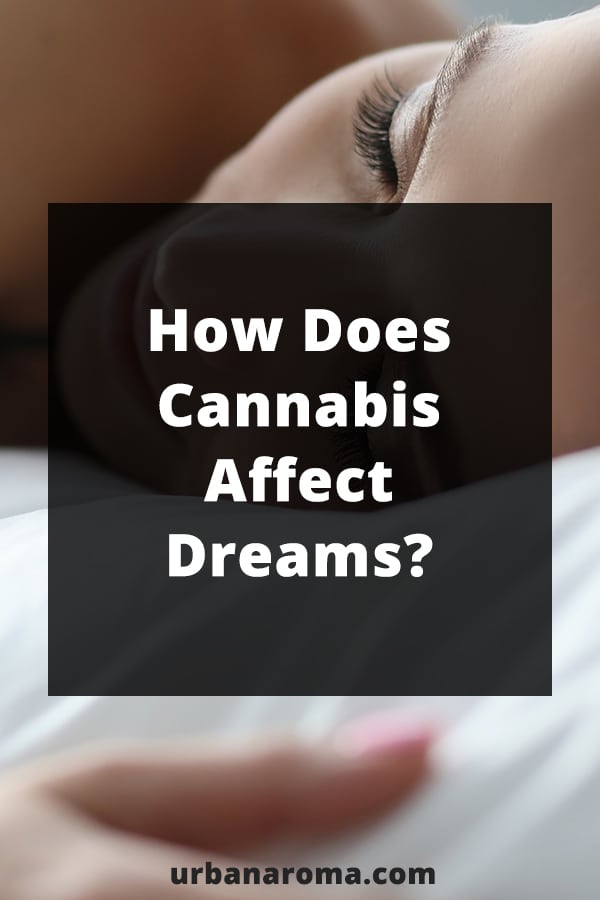The elevating effects of THC, the psychoactive component in cannabis, can change your consciousness when you are awake. Does it affect the way you dream when you're asleep?
Many people use cannabis as a sleep aid. Some doctors recommend it for severe insomnia and other sleep disorders, which are covered under some medical marijuana programs. Research is being conducted on how cannabis affects the sleep cycle and sleeplessness, which can be caused by numerous factors like anxiety, pain, sickness, stress, PTSD and other conditions.
How Do Sleep Cycles Work?
A normal sleep-wake cycle has four stages. These stages are repeated several times during the night. The first stage of sleep is the shortest and lightest. It only lasts a small fraction of the cycle, about 5 percent. During the second stage, the body's temperature and heart rate drop. This stage is about 50 percent of the sleep cycle.
In stage three, you experience the deepest part of the sleep cycle. The body works to help itself during this stage by repairing tissue and strengthening the immune system. Stage four is of the sleep cycle is referred to as REM sleep. REM stands for rapid eye movement. This is the stage where our dreams are formed. You can spend up to two hours dreaming during the night.
People with neurological, psychological, or medical issues often have disrupted sleep cycles. Visually impaired or blind people and those that work jobs with shift disruptions also often have problems with a disrupted sleep cycle.
Is Dreaming Important?
According to Dr. Matthew Walker and other sleep experts, REM sleep is significant. They emphasize and affirm that dreaming during sleep is fundamental to performance and well-being. Dr. Walker suggests that REM sleep helps remove the sting of painful, traumatic, or emotional upsets that are experienced during the day. It is thought that dreaming helps with problem-solving skills and the creative process by fusing memories in novel and abstract ways.
Dreaming can also help formulate overarching rules from knowledge the brain accumulates during the day. Noradrenaline is an anxiety-triggering molecule. During REM sleep, this molecule is drastically reduced in the brain, another reason REM sleep is so important.
How Cannabis Affects Dreaming
Several studies show that cannabis may suppress or decrease REM sleep. Scientists are beginning to ferret out the effects of cannabinoids like THC and CBD when it comes to dreaming.
Back in 1975, Irwin Feinberg M.D. conducted a sleep study which showed that THC significantly reduced REM activity, and reduced the duration of REM as well. One conclusion is that THC may inhibit the ability to dream.
When a long-term cannabis user takes a break from consuming, their dreams may return. This is referred to as the rebound effect. The rebound effect can last up to several weeks while the brain's dream cycle returns to more normal activity.
According to Dr. Jordan Tishler, president of the Association of Cannabis Specialists, deprivation of REM can lead to cognitive dysfunction and mood alterations. Tishler says, “ Small doses of cannabis can lead to quality sleep without apparent REM suppression, or not much, whereas higher doses are more clearly problematic.”
Is Dreaming Less Worth Other Sleep Benefits?
Even though cannabis may have a disruptive effect on dreaming, many say that it helps them sleep better. According to Psychology Today, one of the main benefits of using cannabis for sleep is it can help people fall asleep faster. Cannabis can have a relaxing, sedative effect. Cannabis also seems to make the deep sleep stage last longer.
Another pro of using cannabis for sleep is that it doesn't have the side-effects that prescription or over-the-counter sedatives can cause. Using pharmaceutical sedatives for sleeping can cause slurred speech, insensitivity to pain, blurred vision, staggering, and impaired perception of time and space. You may also feel groggy in the morning when you wake up.
Although dreaming can be pleasant for some, it can mean nightmares for others. It's common for people to experience nightmares from time to time, but for others, it can make going to sleep a dreaded experience. For someone living with post-traumatic stress disorder (PTSD), nightmares can be horrifying and frequent. The effects of cannabis on reduced dreaming could be beneficial for PTSD victims.

